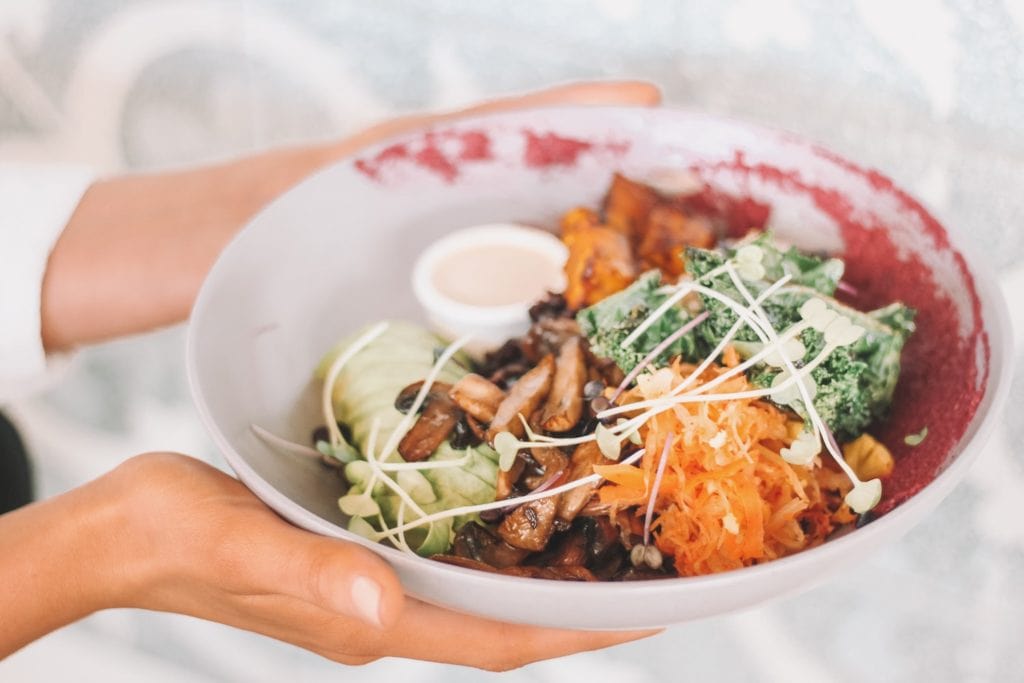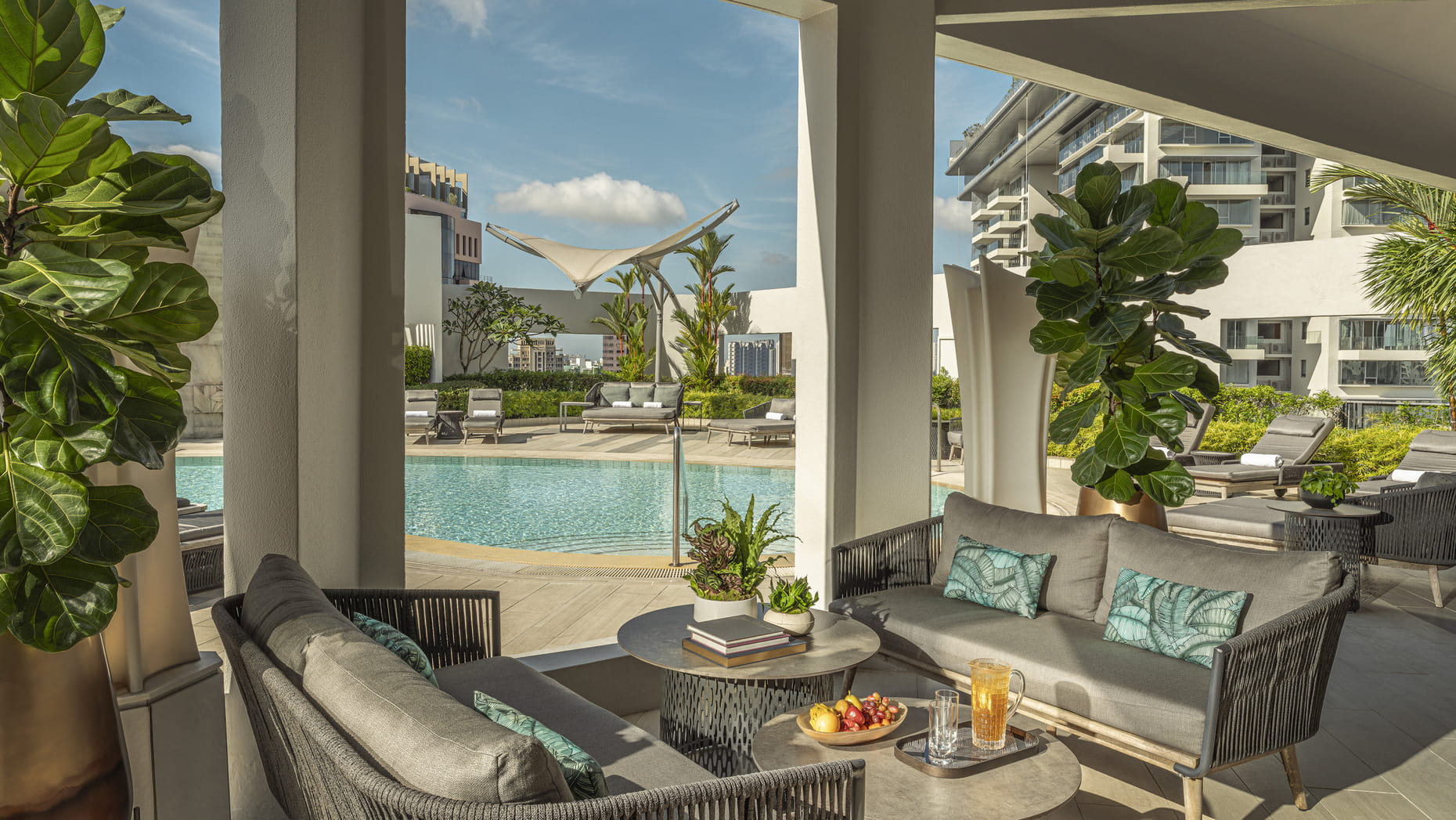Unless you’ve been on a digital detox for the past two months, the novel coronavirus (2019-nCoV) epidemic will have been blowing up your news and social feed. At the time of writing, the novel coronavirus has affected over 146 countries and more than 153,000 people worldwide, according to the World Health Organisation (WHO). The precautions to be taken—regular hand washing, a face mask if you’re feeling unwell, and social distancing—can all help prevent the spread of the disease, but on a personal level, boosting your own immune system can help you recover quicker and suffer milder symptoms. Compare Retreats spoke to health and wellness experts around the world on their top tips to boost your immune system.

Eat well
“The vibrant pigments found in foods derived from Mother Nature—fruits, vegetables, nuts, seeds, legumes, grains, herbs and spices — offer a wealth of immune benefits. Research has shown that some protect body cells from damage and stress. Others regulate and enhance the body’s ability to respond to harmful invaders. Some prevent and counteract inflammation. While still others demonstrate direct antimicrobial actions against bacteria, fungi and viruses. Integrating these foods—from as many shades of the rainbow as possible—can serve as a useful dietary form of immune support.”
“Of the three macronutrients (proteins, carbs, and fats), proteins are arguably the main player in immune function. It is from protein that the immune cells of the body are made and fueled. Likewise, proteins help to heal inflamed or injured tissues. Now is a great time to be attentive to adequate protein in daily meals and snacks, from unprocessed and mindfully sourced animal products (like lean meats, fish, eggs, poultry and dairy), and high-quality plant sources (such as beans, peas, lentils, nuts, and seeds).” — Eve Persak, (MS RDN CNSC CSSD), Nutritionist & COMO Group Nutrition Advisor for COMO Hotels & Resorts
Get a good night’s sleep
“Sleep is your body’s chance to fix and repair whatever is wrong. Sleep supports the proteins and cells of your immune system to detect and destroy bugs and germs by releasing proteins called cytokines. It also helps them to remember those viruses, so they can fight them off even quicker in future. Sleep strengthens your body’s immune response, and at times like these, it’s more important than ever that we’re getting enough of it.”
“A good night’s sleep can boost the effectiveness of certain specialised immune cells called T cells which contribute to the body’s immune response when a potentially harmful foreign body enters the system, These immune cells recognize pathogens then activate integrins, which are a type of protein that allows T cells to attach to and tackle their targets.” — Tristian Kelly, Sleep Therapist, Nutritionist & Naturopath at REVĪVŌ Wellness Resort Bali
Top up on key vitamins
“None of us needs to be told that proper nutrition and restful sleep are two of the basic keys to maintaining mental and physical wellbeing, and yet, for one reason or another, we’re not doing either of those enough. To effectively shield the body against the novel coronavirus—and other viruses for that matter—means actively seeking ways to lower one’s vulnerability to infection. Keep your immune system as strong as it can be by ensuring sufficient intake of vitamins, in particular vitamins C and D and zinc, which work together as boosters for the system.” — Dr Johannes Wessolly, Medical Director of Miskawaan Health Group.
See also: 3 Immune-Boosting Nutrients To Help Build Natural Defences
Just breathe
“Deep breathing helps shift the body into the parasympathetic mode of the autonomic nervous system. The parasympathetic nervous system is the portion that is called the rest and digest mode. When the body is in this state the immune system can work at its strongest. Also, stress can force the body into the sympathetic autonomic nervous system. The sympathetic nervous system is the fight or flight mode of the autonomic nervous system and tends to suppress the immune system. It has been shown that being chronically stressed makes the body more susceptible to infections and illnesses. Breathing exercises may be one the most effective methods to control stress and consciously manipulate the autonomic nervous system.
“In general, breathing exercises improve respiratory function and help regulate the stress response. Presently, it is important to emphasis that breathing practices should be done in isolation from others and in a clean environment with the circulation of fresh air. Don’t do deep breathing exercise if you are already experiencing respiratory symptoms. Once you have contracted a respiratory illness stop deep breathing exercises. Breathing exercises at this time are meant to be done in addition to the CDC’s rules for the prevention of the coronavirus, not as a substitute.” — David Melladew, Wellness Immersion Manager at Amanyara
Learn how to do deep breathing exercises with David here
Air out your living space
“Fumigate the house on a daily basis with camphor, margosa or neem leaves, mustard seeds and vetiver root to help clean the air indoors. Neem, Margosa or Azadirachta indica are antibacterial and have antiviral properties, as does mustard seeds, while vetiver root is a tonic, antiseptic and has detoxifying properties.” — Dr Vishnu, Ayurvedic Doctor at Vana Wellness Resort
Avoid Stress
“Stress pulls resources away from the immune system. When the mind perceives something as stressful—whether it’s a singular event (like a lost wallet, a fire in the kitchen) or a more prolonged period of worry or strain (a relationship break-up or a job loss)—the body interprets this stressor as ‘urgent’. As such, the body redirects a percentage of the energy it might otherwise dedicate to infection protection (creating and mobilising immune cells) to the body’s stress response, which elevates blood pressure, tenses muscles, and accelerates the heartbeat. This leaves the body more vulnerable to becoming ill. The longer the duration of the stress, the longer the body’s defences remain suppressed. So, any stress reduction and coping efforts are of great value in times like these.” — Eve Persak, (MS RDN CNSC CSSD), Nutritionist & COMO Group Nutrition Advisor for COMO Hotels & Resorts
If you’re worried about your immune system or flu season, always speak to your doctor before making significant lifestyle changes. These recommendations to naturally enhance your immune system are not a substitute for medical help, and should be used as part of a healthy lifestyle. Always get medical help if you’re feeling unwell.



